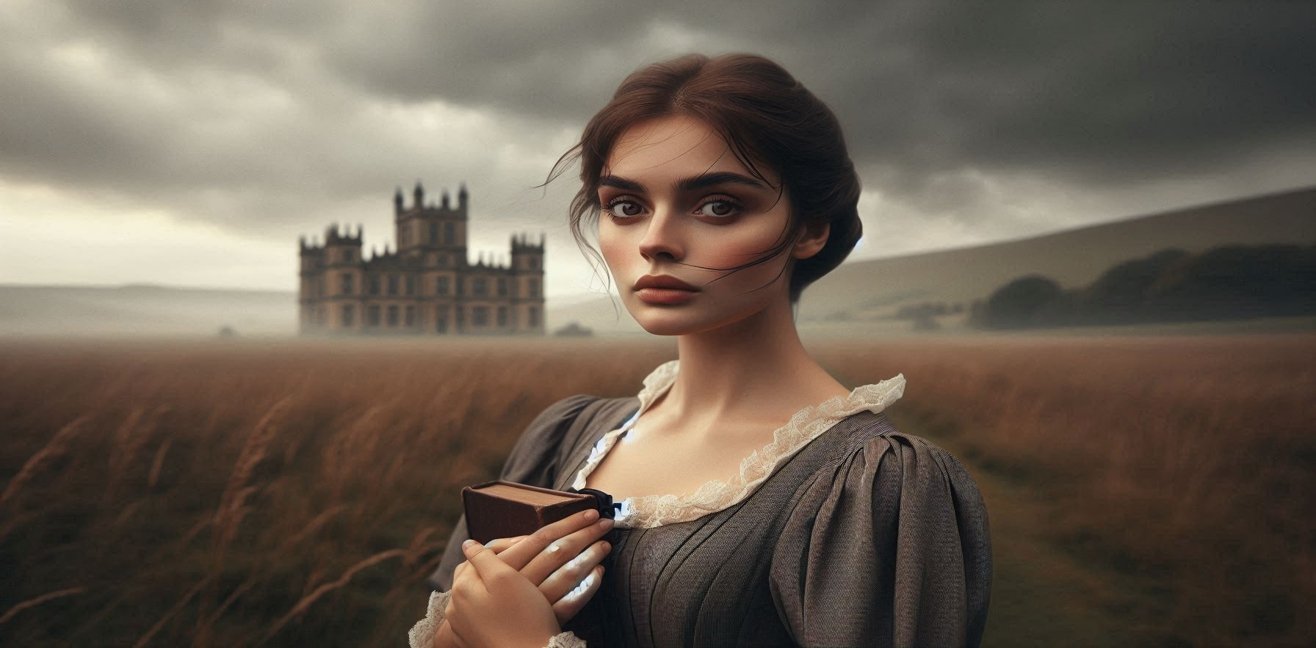‘Ah! well, come forward; be seated here.’ He drew a chair near his own. ‘I am not fond of the prattle of children,’ he continued; ‘for, old bachelor as I am, I have no pleasant associations connected with their lisp. It would be intolerable to me to pass a whole evening tete-e-tete with a brat. Don’t draw that chair farther off, Miss Eyre; sit down exactly where I placed it—if you please, that is. Confound these civilities! I continually forget them. Nor do I particularly affect simple-minded old ladies. By- the-bye, I must have
mine in mind; it won’t do to neglect her; she is a Fairfax, or wed to one; and blood is said to be thicker than water.’
He rang, and despatched an invitation to Mrs. Fairfax, who soon arrived, knitting-basket in hand.
‘Good evening, madam; I sent to you for a charitable purpose. I have forbidden Adele to talk to me about her presents, and she is bursting with repletion: have the goodness to serve her as auditress and interlocutrice; it will be one of the most benevolent acts you ever performed.’
Adele, indeed, no sooner saw Mrs. Fairfax, than she summoned her to her sofa, and there quickly filled her lap with the porcelain, the ivory, the waxen contents of her ‘boite;’ pouring out, meantime, explanations and raptures in such broken English as she was mistress of.
‘Now I have performed the part of a good host,’ pursued Mr. Rochester, ‘put my guests into the way of amusing each other, I ought to be at liberty to attend to my own pleasure. Miss Eyre, draw your chair still a little farther forward: you are yet too far back; I cannot see you without disturbing my position in this comfortable chair, which I have no mind to do.’
I did as I was bid, though I would much rather have remained somewhat in the shade; but Mr. Rochester had such a direct way of giving orders, it seemed a matter of course to obey him promptly.
We were, as I have said, in the dining-room: the lustre, which had been lit for dinner, filled the room with a festal breadth of light; the large fire was all red and clear; the purple curtains hung rich and ample before the lofty window and loftier arch; everything was still, save the subdued chat of Adele (she dared not speak loud), and, filling up each pause, the beating of winter rain against the panes.
Mr. Rochester, as he sat in his damask-covered chair, looked different to what I had seen him look before; not quite so stern— much less gloomy. There was a smile on his lips, and his eyes sparkled, whether with wine or not, I am not sure; but I think it very probable. He was, in short, in his after-dinner mood; more expanded and genial, and also more self-indulgent than the frigid and rigid temper of the morning; still he looked preciously grim, cushioning his massive head against the swelling back of his chair, and receiving the light of the fire on his granite-hewn features, and in his great, dark eyes; for he had great, dark eyes, and very fine eyes, too—not without a certain change in their depths sometimes, which, if it was not softness, reminded you, at least, of that feeling.
He had been looking two minutes at the fire, and I had been looking the same length of time at him, when, turning suddenly, he caught my gaze fastened on his physiognomy.

